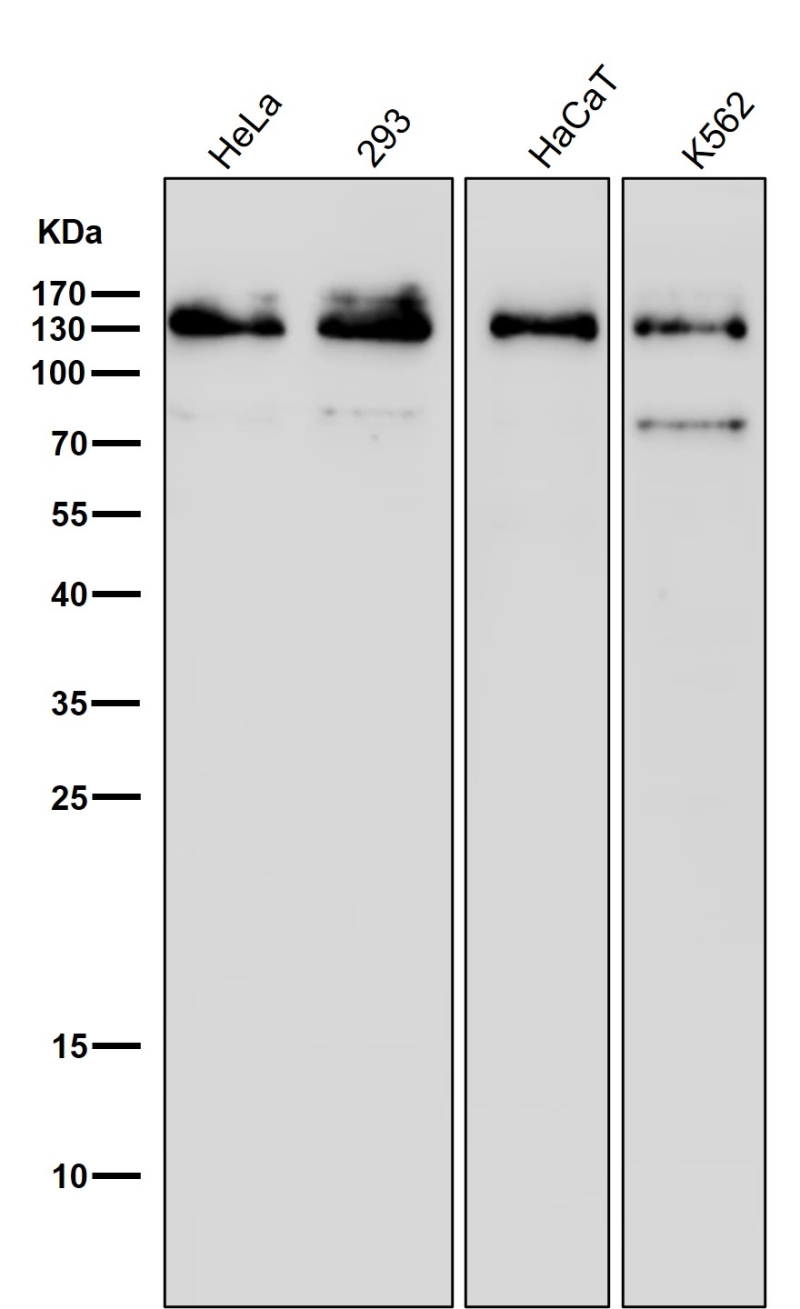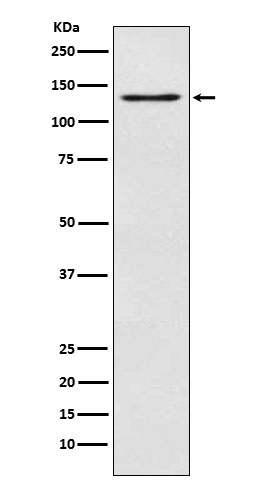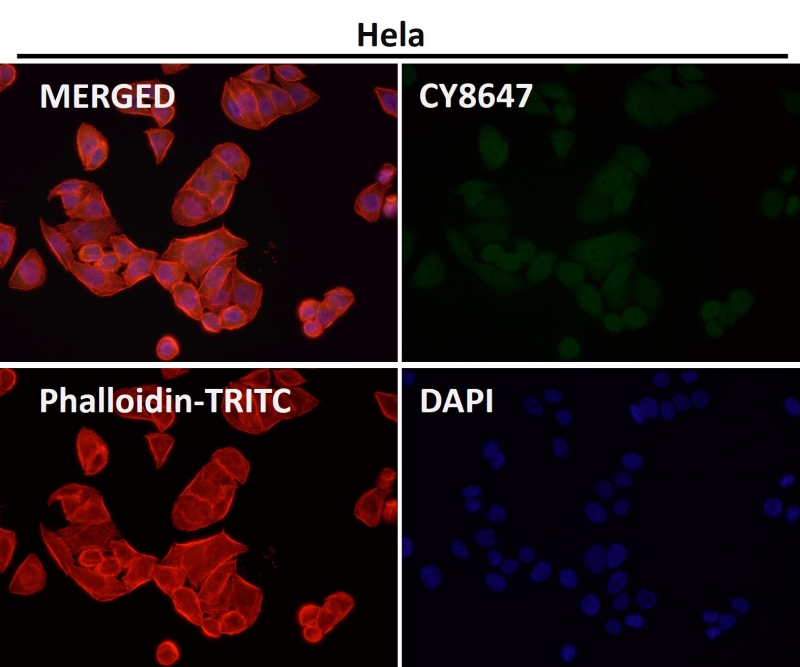



| WB | 1/1000-1/2000 | Human,Mouse,Rat |
| IF | 1/20-1/50 | Human,Mouse,Rat |
| IHC | 1/100-1/200 | Human,Mouse,Rat |
| ICC | 技术咨询 | Human,Mouse,Rat |
| FCM | 咨询技术 | Human,Mouse,Rat |
| Elisa | 咨询技术 | Human,Mouse,Rat |
| Aliases | HEXC; MEA5; Mgea5; NCOAT; OGA;;OGA |
| WB Predicted band size | Calculated MW: 103 kDa ; Observed MW: 130 kDa |
| Host/Isotype | Rabbit IgG |
| Antibody Type | Primary antibody |
| Storage | Store at 4°C short term. Aliquot and store at -20°C long term. Avoid freeze/thaw cycles. |
| Species Reactivity | Human |
| Immunogen | A synthesized peptide derived from human OGA |
| Formulation | Purified antibody in PBS with 0.05% sodium azide,0.05% BSA and 50% glycerol. |
+ +
以下是3篇关于MGEA5(O-GlcNAcase)抗体的文献摘要信息:
---
1. **文献名称**:*"O-GlcNAcase is essential for embryonic development and maintenance of genomic stability"*
**作者**:Janetzko J. et al.
**摘要**:该研究利用特异性MGEA5抗体,验证了O-GlcNAcase在小鼠胚胎发育中的关键作用,发现其缺失导致胚胎致死及DNA损伤修复异常,提示其在表观遗传调控中的重要性。
---
2. **文献名称**:*"A monoclonal antibody against human O-GlcNAcase enables rapid cellular imaging of O-GlcNAc dynamics"*
**作者**:Kim EJ. et al.
**摘要**:团队开发了一种高特异性抗人MGEA5单克隆抗体,用于细胞成像研究O-GlcNAc糖基化动态变化,验证了其在阿尔茨海默病模型中的酶活性下降现象。
---
3. **文献名称**:*"O-GlcNAcase expression is associated with malignant potential in colorectal cancer"*
**作者**:Park SJ. et al.
**摘要**:通过免疫组化(使用MGEA5抗体)分析结直肠癌组织,发现O-GlcNAcase表达水平与肿瘤侵袭性及患者预后显著相关,提示其作为潜在生物标志物的价值。
---
4. **文献名称**:*"Targeting O-GlcNAcase in neurodegenerative disorders: Insights from antibody-based assays"*
**作者**:Li Z. et al.
**摘要**:综述了利用MGEA5抗体检测脑脊液中O-GlcNAcase活性的方法,探讨其在帕金森病和tau蛋白病中的病理机制及治疗靶点潜力。
---
以上文献涵盖了抗体开发、疾病机制研究和诊断应用方向。实际引用时建议核对最新数据库(如PubMed)获取全文信息。
The MGEA5 antibody targets the protein meningioma-expressed antigen 5 (MGEA5), also known as O-GlcNAcase (OGA), an enzyme involved in the removal of O-linked β-N-acetylglucosamine (O-GlcNAc) post-translational modifications from cellular proteins. Discovered in studies of meningiomas, MGEA5/OGA plays a critical role in regulating O-GlcNAcylation, a dynamic process that influences protein function, cellular signaling, and gene expression. Dysregulation of O-GlcNAc cycling has been linked to neurodegenerative diseases, diabetes, and cancer.
MGEA5 antibodies are widely used in research to investigate O-GlcNAc metabolism and its impact on cellular processes such as stress response, apoptosis, and epigenetic regulation. In neurodegenerative contexts, altered O-GlcNAcylation is associated with tau and amyloid-β pathologies in Alzheimer’s disease. MGEA5 inhibitors are also explored for therapeutic potential in metabolic disorders.
As a diagnostic tool, MGEA5 antibodies help detect protein expression patterns in tumors and other tissues, aiding in understanding disease mechanisms. Their application extends to studying crosstalk between O-GlcNAcylation and phosphorylation, a key area in cellular signaling research. Overall, MGEA5 antibodies serve as vital reagents for elucidating the biological and pathological roles of O-GlcNAc dynamics.
×